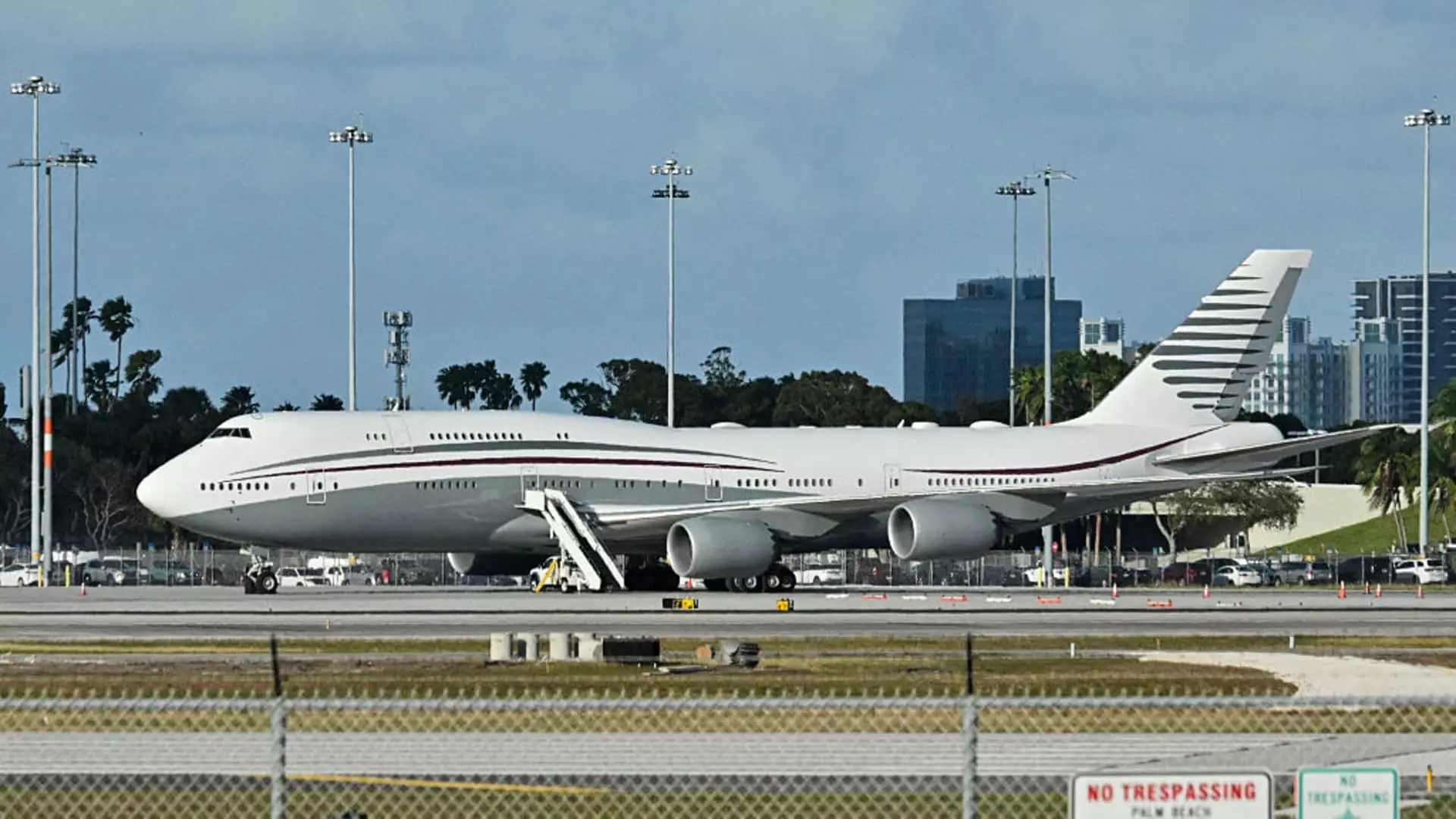The Trump administration’s acceptance of a luxurious Boeing 747 jet from Qatar has sparked a firestorm of political debate and controversy. The Pentagon confirmed that Defense Secretary Pete Hegseth accepted the plane, touted by President Trump as the potential new Air Force One, adhering to federal rules. However, this seemingly straightforward transaction raises alarming questions about ethics, national security, and political integrity. The act of accepting gifts from foreign governments interferes dangerously with the principle of clean governance and has profound implications in American politics.
Illusions of Generosity: Gift or Bribe?
Trump remarked in a press conference that Qatar’s gift was “a great thing” intended to help the U.S. However, such declarations dramatically oversimplify a complex issue. By framing the situation as mere generosity from one nation to another, Trump effectively diminishes the potential implications of a foreign nation influencing American leadership through gifts. Critics across the political spectrum have condemned the deal, with accusations of bribery ringing particularly loud from Democrats. Senate Minority Leader Chuck Schumer emphasized that this breach of protocol is “a stain on the office of the presidency.” Such high-stakes exchanges can easily blur ethical lines and undermine the perception of an independent judiciary.
The Timing and Motivations Behind the Acceptance
The timing of this acceptance raises eyebrows. Trump’s frustrations over delays in the delivery of two new Air Force One aircraft have been well-documented, with Boeing facing significant setbacks. The Qatar jet appears to be a convenient stopgap for an administration under pressure. Is Trump simply leveraging a foreign gift to alleviate discomfort regarding his military transportation woes, or is the real motivation much more sinister? Several experts believe the cost of converting the aircraft could spiral into over a billion dollars, leading to bewilderment over whether taxpayers should foot the bill for an “expedited” alternative when a government with a vested interest is involved.
Potential National Security Risks
Concerns over national security loom large in discussions surrounding the Qatar jet. Veteran lawmakers like Sen. Susan Collins have voiced unease about the potential ramifications of accepting such a “gift.” It is crucial to recognize that national security isn’t merely a blanket issue; it’s intricately tied to perceptions of trust and loyalty between nations, particularly when the gift is sourced from a country that the U.S. has had tumultuous relationships with in the past. Such transactions can create precedents that expose future administrations to conflicts of interest and accusations of pandering to foreign interests. The divergence between political power and financial gratitude can become treacherously blurry.
Voices of Dissent Within the Political Right
Even within Trump’s Republican base, dissent has surfaced. Some GOP members have voiced concerns about the ethical ramifications of this transaction, indicating that the critique of the deal isn’t strictly partisan. The apprehension from both sides of the aisle signals a growing awareness that the normalization of foreign gifts has broader ramifications for American democracy. The idea that a foreign government can curry favor through material gifts opens Pandora’s box and can lead to an erosion of accountability within American political spheres.
The Role of Transparency in Governance
The desire for transparency in governance and political dealings cannot be understated. Critics, including Schumer, insist on holding up Trump’s political nominations to demand clarity on this questionable exchange. This advocacy for transparency is vital; in a democracy, public trust must be maintained at all costs. Continued disregard for ethical standards threatens to undermine the very institution of the presidency. Moving forward, it’s imperative that both the executive branch and Congress foster a culture of accountability, promoting standards that curtail potential conflicts of interest.
In this increasingly turbulent political landscape, questions surrounding the Qatar jet embody the larger issues facing American democracy today. It serves as a reminder of the delicate balance between national interest and ethical governance and the ongoing battle for transparency and accountability in our elected officials.


Leave a Reply